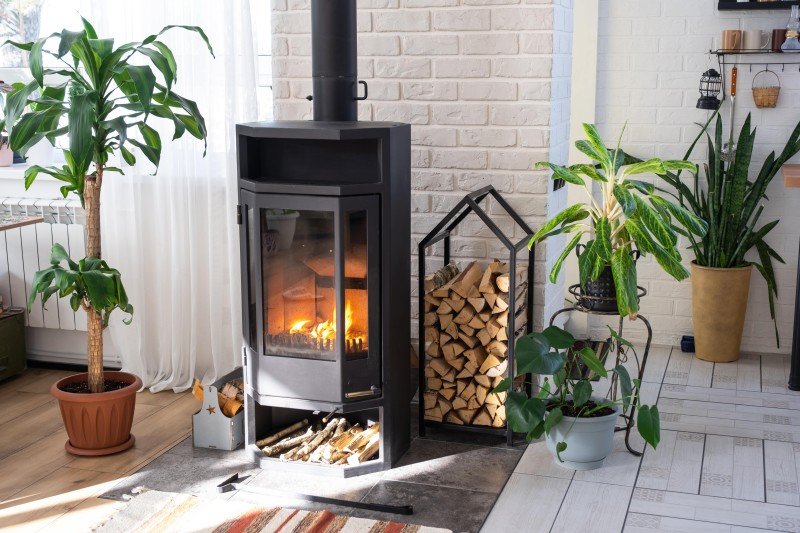The Best Fireplaces: A Comprehensive Guide for Homeowners
Fireplaces have long been a beloved feature in homes, providing both warmth and a welcoming environment. They come in various styles, sizes, and fuel types, enabling homeowners to choose one that fits their individual aesthetic and heating needs. This article looks into the very best fireplaces, highlighting key functions and factors to consider to assist you make an informed decision.
Kinds of Fireplaces
Comprehending the various types of fireplaces is crucial in selecting the best choice for your home. Below are the most typically used fireplaces:
Wood-Burning Fireplaces
- Benefits: Traditional appeal, natural ambiance, and effective heating.
- Disadvantages: Requires regular maintenance, ash disposal, and goes through local guidelines relating to emissions.
Gas Fireplaces
- Advantages: Convenient, clean-burning, and easy to operate.
- Disadvantages: Requires a gas line, can be more expensive to install initially.
Electric Fireplaces
- Advantages: Easy setup, low maintenance, and the most safe alternative for homes with kids or family pets.
- Drawbacks: Lack the genuine feel of wood or gas flames, might not heat large spaces efficiently.
Pellet Stoves
- Advantages: Eco-friendly, effective, and offer a constant heat output.
- Drawbacks: Requires electrical power to run, and pellet supply can be restricted in some locations.
Ethanol Fireplaces
- Benefits: No chimney required, portable, and environmentally friendly.
- Downsides: Generally less effective for heating.
A Comparison of Fireplace Types
| Type | Setup Cost | Running Cost | Heat Output | Maintenance | Ecological Impact |
|---|---|---|---|---|---|
| Wood-Burning | ₤ ₤ | ₤ | High | High | Moderate |
| Gas | ₤ ₤ ₤ | ₤ ₤ | Medium-High | Low | Moderate |
| Electric | ₤ | ₤ ₤ | Low | Really Low | Low |
| Pellet | ₤ ₤ | ₤ | Medium | Medium | Low |
| Ethanol | ₤ ₤ | ₤ ₤ ₤ | Low | Very Low | Really Low |
Top Considerations When Choosing a Fireplace
When you're in the market for a brand-new fireplace, keep the following elements in mind to ensure you choose the very best one for your home:
- Purpose and Functionality: What do you want your fireplace to do? Is it for heating or visual appeals? This will assist your option considerably.
- Area Availability: Measure the area where you wish to set up the fireplace. Guarantee the picked type fits without overwhelming the area.
- Fuel Source: Assess the accessibility and cost of different fuel sources in your location to prevent unforeseen expenditures.
- Installation Complexity: Some fireplaces might require considerable modifications to your existing home structure.
- Building Regulations and Regulations: Be conscious of regional laws regarding ventilation, security, and emissions, as these can affect your fireplace choice.
- Aesthetic Appeal: The style and style of a fireplace can work as a centerpiece or complement the existing decor, so select one that enhances your home's total aesthetic.
Advantages of a Fireplace
Adding a fireplace to your home affords numerous advantages:
- Enhanced Aesthetic Appeal: A fireplace can elevate the decor of any room, creating a cozy and welcoming atmosphere.
- Increased Home Value: A well-installed fireplace can add considerable worth to your home, making it interesting potential buyers.
- Energy Efficiency: Modern fireplaces, specifically gas and pellet ranges, can supply reliable heating while reducing energy costs.
- Emergency Situation Heat Source: In cases of power blackouts, a wood or gas fireplace can serve as a trusted heat source.
- Celebration Space: Fireplaces typically become the centerpiece for events, promoting heat and convenience during friend or family' parties.
Regularly Asked Questions (FAQs)
Q: How much does it cost to set up a fireplace?A: Installation expenses can differ substantially based upon the kind of fireplace, structural requirements, and labor costs. Basic electric fireplaces may cost around ₤ 300, while custom-built wood or gas fireplaces can run from ₤ 3,000 to upwards of ₤ 10,000. Q: Are electric fireplaces safe?A: Yes, electric
fireplaces are normally safe.
They do not discharge carbon monoxide gas and have no open flames. They often include security functions like automated shut-off mechanisms. Q: How often must I have my chimney cleaned?A: If you utilize a wood-burning fireplace, it's recommended to have your chimney cleaned up at least once a year
to prevent creosote buildup, which can result in chimney fires. Q: Can I set up a gas fireplace myself?A: It's not recommended to set up a gas fireplace without professional help due to the intricacies connected with gas
lines, ventilation, and safety guidelines. Q: What are the best kinds of fuel for wood-burning fireplaces?A: The best fuel choices consist of well-seasoned hardwoods like oak, maple, or hickory, as they burn hotter and cleaner compared to softwoods. Picking the very best fireplace for your home
involves considering many aspects, from looks to operate and safety. Each kind of fireplace has its distinct benefits and prospective drawbacks.
Understanding these elements, in addition to your personal heating needs and budget constraints, will assist you in making a notified choice. Eventually, Fireplace Retailers UK can offer not just heat but also a rich ambiance, changing your home into an inviting sanctuary.

